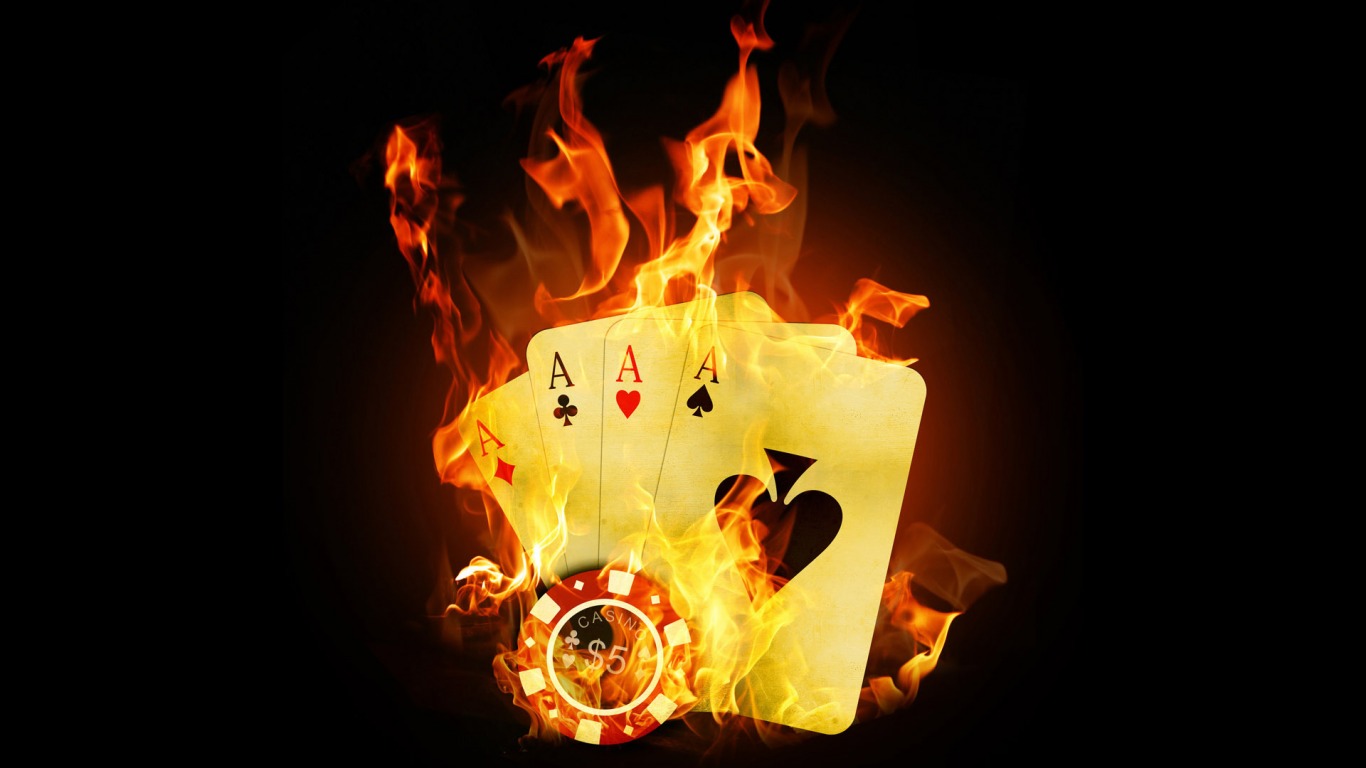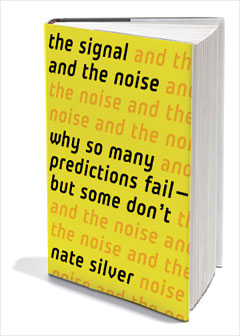
By Phil Galfond
The expected value (EV) d a game is the amount of money that you should expect to earn, on average, by making a play. For example, say that you don't have showdown value on the river and bluff you $1000 in a pot of $1400. In General, you expect that this bluff pays you once on two. Your expected value is calculated as: (-1000 x. 5) + (1400 x. 5) = $200.
The expected value (EV) d a game is the amount of money that you should expect to earn, on average, by making a play. For example, say that you don't have showdown value on the river and bluff you $1000 in a pot of $1400. In General, you expect that this bluff pays you once on two. Your expected value is calculated as: (-1000 x. 5) + (1400 x. 5) = $200.
By Phil Galfond
 L expected value (EV) d a game is the amount of money that you should expect to earn, on average, by making a play. For example, say that you don't have showdown value on the river and bluff you $1000 in a pot of $1400. In General, you expect that this bluff pays you once on two. Your expected value is calculated as: (-1000 x. 5) + (1400 x. 5) = $200.
L expected value (EV) d a game is the amount of money that you should expect to earn, on average, by making a play. For example, say that you don't have showdown value on the river and bluff you $1000 in a pot of $1400. In General, you expect that this bluff pays you once on two. Your expected value is calculated as: (-1000 x. 5) + (1400 x. 5) = $200.
You should expect to earn an average of $200 with the river bluff above, assuming you are right half the time. Cool? Cool.
The problem with l expected value, is that it is often misinterpreted. People look at the game, l analyse as I pointed above, and decide as they have a good game just because the expected value is greater than 0. The problem, c is that when comparing l expected value of a set to 0, it is assumed that the alternative is to give up the pot at 100%. For example, suppose that j is considering a bet on the flop rather than a river bluff. The statistics are the same for one and the other proposed situations.
Let's say you have a rainbow flop J-10 K-8-7, your opponent check and you give the floor, and you must decide if you bet. There are much more significant factors that only check the percentage of the time it goes down. In addition to the three possibilities to consider first (you check and lose the pot, you bet and he folds, you bet and he calls), there are tons of possible variants: you bet and he folds, you bet and he raises, you bet and he raises, and he found himself all-in-on a 9 at the turn, you do a three-barrel bluff and he call the three street, you check and have a 9 at the turn. your opponent stack his set of 8 which would have revived you out of your hand on the flop, you check and hit a Jack, you bet to bluff it out of his hand on an ACE on the turn.
Evaluate only the EV's as we l have the River would be far too simplistic. So, what to do? To be honest, I never took the time to look at a hand and to analyze all the scenarios possible starting with the action on the flop, and I suspect that it would take weeks to deepen sufficiently l analysis. The better we can reasonably do is weigh the pros and cons of factors to consider and then make a decision based on this analysis.
Then, when you analyze a c - bet, you should think about 1) how often folds on this flop in particular; (2) for how often raise your continuation bets (c - bet); (3) at how often will you win the hand if you check; 4) how often the stackerez you if you hit some cards; (5) for how often better hands lie face our development and; (6) how often a worse hand will call.
Many people justify their updates by a bad logic. An example:
You play a loose player and very aggressive in head up. The blinds are a 25/50 with stacks of 5 k. You raise A ♠ ♠ 5 at $150 and it call.
The flop is J 6 4 ♥ ♠ ♥. It reviews the situation.
Most people bet on this game and justify their choice thus: "I probably still have the best hand here, then I put." " They have learned from their experience personal qu a bet here wins the pot about 60% of the time, so they should earn money, with an upgrade $ 250 in the pot of $300.
The problem is that they are not interested in l EV hidden parsing. If you check, not only you can checker down and win this pot, but you can also hit some backdoors on the turn or improve your hand with an ACE.
You notice what he often folds after your bet on the flop. Think a little at the hands on which it lies. He already lying a pair? No, it does s is probably never slept with a better hand. It will fold hands like Q-9 and 10-9 and K-2 suited, hands against which you win the pot anyway. And it call with hands like 6♠5♠, 5-5, etc. But he raises with hands like K - J, 8♠7♠, K♥5♥ and some bluffs. Thus, it forces you to fold with a better hand or a hand that could s improve.
But we must also see the other side of the coin. Occasionally, he will knock a 9 on the turn with his 10-9 which is would be lying. Or it could decide to bluff with a draw on the turn which is would be lying on the flop.
Overall, it is actually difficult to make a decision as to bet or not. And I me plug completely if the decision is the best or the worst: it really depends on your image, your opponent, the flow of the game as well as other factors such as these. You think otherwise that as you usually think.
If you make continuation bets too often, a good player will benefit and you will beat. Think of the hands that you want checker behind. ACE-high are good hands to do this because these are hands that can improve and because what won't sleep much better hands (which is not really a bluff or a setting, but rather what I like to call a game to "placing more easy").
The EV's checker behind with a hand like K-high is not $ 0. The checker EV a flush draw on the turn is not $ 0. The caller EV a 3 - bet preflop instead of 4-better with AK nest not $ 0. Think about the value of games that you n have not considered. Also consider the different ways in which you can enjoy your hand so as to what you have to lose or gain by choosing a different alternative.
N forget to think. Good luck.
 L expected value (EV) d a game is the amount of money that you should expect to earn, on average, by making a play. For example, say that you don't have showdown value on the river and bluff you $1000 in a pot of $1400. In General, you expect that this bluff pays you once on two. Your expected value is calculated as: (-1000 x. 5) + (1400 x. 5) = $200.
L expected value (EV) d a game is the amount of money that you should expect to earn, on average, by making a play. For example, say that you don't have showdown value on the river and bluff you $1000 in a pot of $1400. In General, you expect that this bluff pays you once on two. Your expected value is calculated as: (-1000 x. 5) + (1400 x. 5) = $200.You should expect to earn an average of $200 with the river bluff above, assuming you are right half the time. Cool? Cool.
The problem with l expected value, is that it is often misinterpreted. People look at the game, l analyse as I pointed above, and decide as they have a good game just because the expected value is greater than 0. The problem, c is that when comparing l expected value of a set to 0, it is assumed that the alternative is to give up the pot at 100%. For example, suppose that j is considering a bet on the flop rather than a river bluff. The statistics are the same for one and the other proposed situations.
Let's say you have a rainbow flop J-10 K-8-7, your opponent check and you give the floor, and you must decide if you bet. There are much more significant factors that only check the percentage of the time it goes down. In addition to the three possibilities to consider first (you check and lose the pot, you bet and he folds, you bet and he calls), there are tons of possible variants: you bet and he folds, you bet and he raises, you bet and he raises, and he found himself all-in-on a 9 at the turn, you do a three-barrel bluff and he call the three street, you check and have a 9 at the turn. your opponent stack his set of 8 which would have revived you out of your hand on the flop, you check and hit a Jack, you bet to bluff it out of his hand on an ACE on the turn.
Evaluate only the EV's as we l have the River would be far too simplistic. So, what to do? To be honest, I never took the time to look at a hand and to analyze all the scenarios possible starting with the action on the flop, and I suspect that it would take weeks to deepen sufficiently l analysis. The better we can reasonably do is weigh the pros and cons of factors to consider and then make a decision based on this analysis.
Then, when you analyze a c - bet, you should think about 1) how often folds on this flop in particular; (2) for how often raise your continuation bets (c - bet); (3) at how often will you win the hand if you check; 4) how often the stackerez you if you hit some cards; (5) for how often better hands lie face our development and; (6) how often a worse hand will call.
Many people justify their updates by a bad logic. An example:
You play a loose player and very aggressive in head up. The blinds are a 25/50 with stacks of 5 k. You raise A ♠ ♠ 5 at $150 and it call.
The flop is J 6 4 ♥ ♠ ♥. It reviews the situation.
Most people bet on this game and justify their choice thus: "I probably still have the best hand here, then I put." " They have learned from their experience personal qu a bet here wins the pot about 60% of the time, so they should earn money, with an upgrade $ 250 in the pot of $300.
The problem is that they are not interested in l EV hidden parsing. If you check, not only you can checker down and win this pot, but you can also hit some backdoors on the turn or improve your hand with an ACE.
You notice what he often folds after your bet on the flop. Think a little at the hands on which it lies. He already lying a pair? No, it does s is probably never slept with a better hand. It will fold hands like Q-9 and 10-9 and K-2 suited, hands against which you win the pot anyway. And it call with hands like 6♠5♠, 5-5, etc. But he raises with hands like K - J, 8♠7♠, K♥5♥ and some bluffs. Thus, it forces you to fold with a better hand or a hand that could s improve.
But we must also see the other side of the coin. Occasionally, he will knock a 9 on the turn with his 10-9 which is would be lying. Or it could decide to bluff with a draw on the turn which is would be lying on the flop.
Overall, it is actually difficult to make a decision as to bet or not. And I me plug completely if the decision is the best or the worst: it really depends on your image, your opponent, the flow of the game as well as other factors such as these. You think otherwise that as you usually think.
If you make continuation bets too often, a good player will benefit and you will beat. Think of the hands that you want checker behind. ACE-high are good hands to do this because these are hands that can improve and because what won't sleep much better hands (which is not really a bluff or a setting, but rather what I like to call a game to "placing more easy").
The EV's checker behind with a hand like K-high is not $ 0. The checker EV a flush draw on the turn is not $ 0. The caller EV a 3 - bet preflop instead of 4-better with AK nest not $ 0. Think about the value of games that you n have not considered. Also consider the different ways in which you can enjoy your hand so as to what you have to lose or gain by choosing a different alternative.
N forget to think. Good luck.




